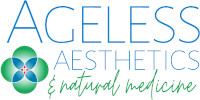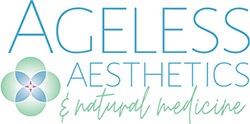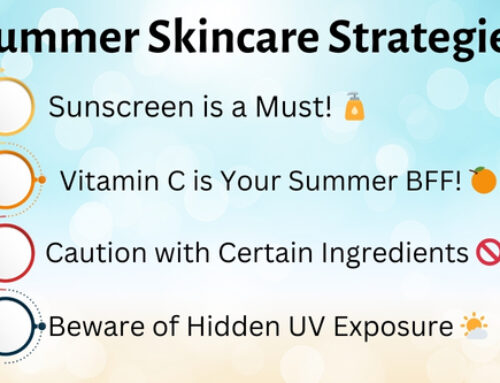Collagen supplements are a multibillion dollar industry, and have been booming for the last several years. These companies claim that their collagen products will give you younger looking, healthier skin, as well as improve joints, cartilage, and bone health. But is it true? Can adding a simple powder to your coffee every morning really give you youthful glowing skin? Let’s unpack this a little bit by understanding what collagen is, what it does for the body, and what these supplements are.

What is collagen? Why is collagen essential to the body?
Collagen is a long chain of proteins. There are 3 types: Type 1, 2, & 3. Collagen Type 1 & 3 make up 90% of the collagen in the body and are the two types we are most concerned with for skin health. Collagen is made of several amino acids (the building blocks of all proteins) linked together to form long chains. Some of these amino acids are: glycine, proline, alanine, and hydroxyproline. This long chain of collagen, along with another protein called Elastin, work together to create a strong rope-like network which reinforces the tissue around it. Having a strong collagen network in skin tissue gives skin a youthful & soft appearance. The other type of collagen, Type 2, is produced in the spaces between joints and provides cushioning between the joints to helps them slide smoothly. Collagen is also found in other tissues like bones, ligaments, and fascia. Think of it as the strong net that holds body tissues together and lets them flex and stretch. This makes collagen an essential part of literally holding your body together.
If we take one step back, we see that collagen is produced by a cell called a “Fibroblast”. Fibroblasts are the most common type of cell found in connective tissue, such as skin, ligaments, tendons, bone, and facia. Stimulating fibroblasts is another method to increase natural collagen & elastin production and there are certain procedures that can accomplish this, such as Microneedling facials.
Collagen production decreases by 10% every decade
As we get older, our body’s natural ability to produce collagen slowly decreases. Babies, adolescents, and young adults have the most collagen. But as early as age 20 the body’s ability to produce collagen decreases by 10% every 10 years, which means a 40 year old has 20% less collagen than a 20 year old, and a 55 year old has 35% less collagen than a 20 year old. Other factors, such as sun exposure, smoking, environmental pollution, alcohol use, and nutrient deficiency can also contribute to less collagen production. The effects of less collagen are noticeable as drier, thinner, less elastic, and wrinkly skin.

So what’s in a collagen supplement?
The most common form of collagen supplement is a powder that can easily dissolve in water. Collagen powders can be made from pig, cow, marine, or vegan sources. Most collagen supplements are made by a process called hydrolyzation. Hydrolyzation is a chemical process that uses water molecules to chop up large molecules into small “bite-sized” pieces. This makes the collagen powder easily absorbed into the body and blood stream. You will see this written on labels as “hydrolyzed collagen”, “collagen peptides” or ”collagen hydrolysate”. They all mean that the collagen has been processed in a way that makes it easily absorbed by the body. This process also makes collagen powder very dissolvable in hot or cold liquid. Collagen coffee, anyone?
Why you should start supplementing with collagen yesterday!
Since time keeps moving forward, and never backward, the goal of anti-aging techniques is to stop the aging process in its tracks. Since our bodies start decreasing collagen production in our 20’s then it’s reasonable to start supplementing with collagen as early as your 20’s. Although there’s no definitive research study to support that recommendation, my personal opinion is that collagen supplementation in the 20’s and 30’s can go a long way to preserving skin health and preventing the loss of collagen with time. This same line of thought is why other collagen preserving and stimulating treatments are being recommended to adults in their 20’s, like microneedling, and botox.

But does it actually work?
Yes, it does. We know that collagen supplements are absorbed and used by the body because there are research studies that prove it! These studies found that an intake of about 2.5g to 10g of collagen a day for about 2-3 months resulted in more skin elasticity, more skin hydration, and decreased skin roughness. And they found that the beneficial results lasted for at least 4 weeks after discontinuing the collagen supplement.
Which collagen supplement should I take?
Whether you’re pescatarian, vegan, kosher, Paleo, or Whole 30, there is a collagen to fit your dietary style. Many collagen supplements are derived from either pig, cow, or marine sources, and vegan sources are also available. Look for a product that includes the words “hydrolyzed collagen”, “collagen peptides”, or ”collagen hydrolysate”. This is the bite-sized collagen that is easy for the body to absorb. Of course, there are plenty of natural sources of collagen too. The best source of collagen is bone broth. But I don’t mean bone broth from a can or box, I mean homemade, slow cooked for 10 hours, with bones and chicken feet and cartilage. You’ll know you’ve made the best collagen broth when your soup turns to jello in the fridge.

Don’t forget about Vitamin C!
Vitamin C is a powerful anti-oxidant. It plays a role in wound healing, photoprotection (it limits damage caused by ultraviolet (UV) light exposure), and is an important component of the collagen building process. On a molecular level, Vitamin C helps stabilize collagen proteins to keep them together and keep them strong. How much Vitamin C do you need? There are different recommendations floating around. The standard recommendation is about 75 – 90 mg. BUT, research compiled by the Linus Pauling Institute recommends a much higher dose: 400mg a day for generally healthy adults. Smokers, older adults, and those experiencing disease or stress may benefit from higher doses.
My skin is so dry, and wrinkled, and sun damaged. Is all hope lost?
No! Supplementing with collagen is only one way to help revitalize your skin. There are several other strategies that can be incorporated into a skin regimen; like staying hydrated (drinking lots of water), using medical grade skin products, microneedling facials are an excellent way to stimulate more new collagen, and getting regular botox treatments protects the collagen you have by preventing the skin from folding.
Time always moves forward; it never moves backwards. By starting a treatment protocol now you can protect and enhance the collagen you have, and prevent the effects of aging from ever happening. The first step in taking control of your apparent age is to schedule a video call where we will talk about YOU and how you want to feel about yourself. From there, we will create a treatment plan that will help you achieve your goals. The most important step is for you to make the decision to get what you want. Book an appointment and we’ll chat!
For more information like this, click here:






